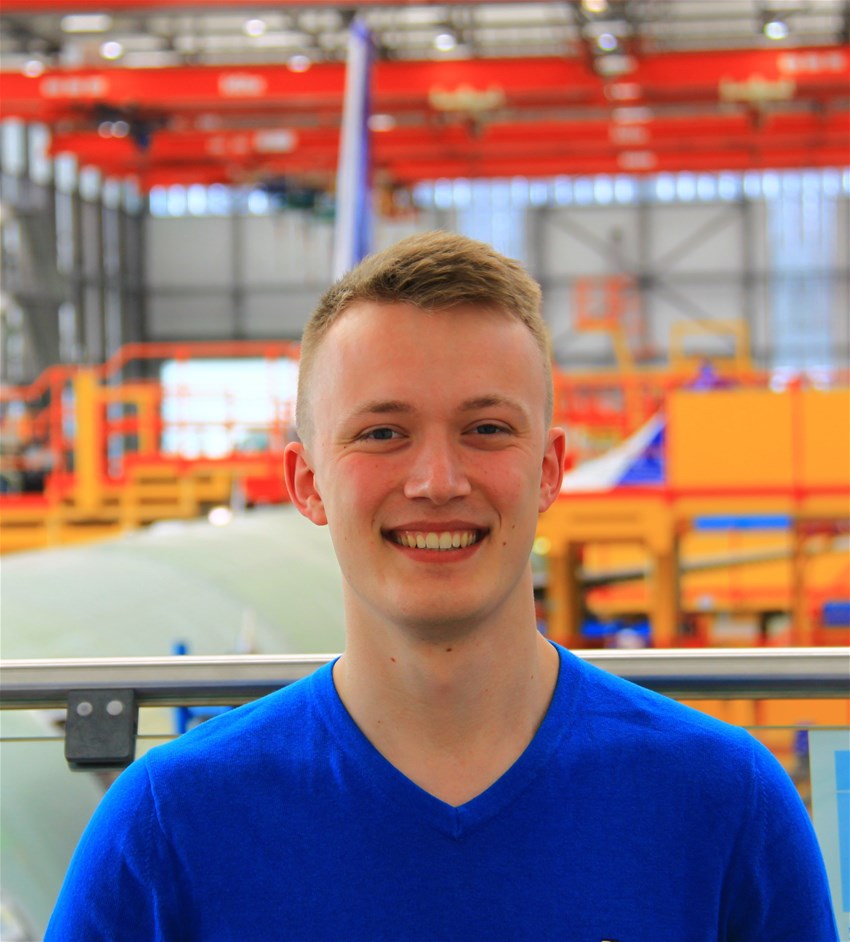Till Johannes Evers – Student from Germany
The decision to pursue a Master's degree is often accompanied by the question of where to study. Till Johannes Evers, a student from Hamburg, Germany, found himself drawn to Sweden and to the Master's in AI and Automation at University West.
 Till's academic background in mechanical engineering led him to explore machine learning during his bachelor's thesis. Intrigued by the subject, he decided to pursue AI and automation for his Master's. After conducting research on various programmes throughout Europe, he discovered the newly-established programme Master in AI and Automation, at University West. "I looked at the course offerings and saw that it fit well with my interests," he says.
Till's academic background in mechanical engineering led him to explore machine learning during his bachelor's thesis. Intrigued by the subject, he decided to pursue AI and automation for his Master's. After conducting research on various programmes throughout Europe, he discovered the newly-established programme Master in AI and Automation, at University West. "I looked at the course offerings and saw that it fit well with my interests," he says."I really loved the Swedish application system - one place where you upload all the documents, to all the universities." However, the admission process wasn't without its challenges. Till was initially rejected due to a lack of credits in mathematics and computer science. But what impressed him, and made him feel heard, was the university's willingness to consider his situation.
“I got the chance to have a conversation with someone from University West, and explain what I did for mathematics and computer science. That my previous courses contained it,” he says. “They then reviewed my application and accepted me.”
Studying in Sweden
Till finds the most fun part of studying to be the group projects and labs where he can work together with other students - exchanging opinions and ideas, helping and being helped by others in the group. Through these collaborations, they have worked on some interesting projects such as a camera project where they had to place different objects on a white table and make the camera recognize credit cards or AAA batteries, mark them with a box, apply text, and display the size of the object. It was a challenge, but they managed to make it work in the end. For Till, the process of working together in a group and seeing the results at the end is the most enjoyable part of his studies so far.
One of the things that stands out for Till is the level of engagement between students and professors. "Students are more on the same level with the professors," he says. "You're allowed to say their first name to anyone. It's more an equal level, and that's what I really like." He also appreciates the university's well-structured systems, such as the course PM that consolidates all relevant information, the Canvas platform for course materials, and the exam web page that publishes all exams online.
Till also appreciates the modern amenities offered by his university. He loves the fact that there are plenty of study rooms available for group work or for those who prefer a quiet space to study. He finds that it’s easy for him to come to university every day and enjoy his time there.
Another aspect of university life that Till appreciates is the flexibility of his schedule. With some days having no lectures or labs, he has the freedom to plan his work on his own, which allows him time to visit his loved ones back home in Germany. These visits, and being visited in return, are an important part of Till's life outside of university life, and he values the ability to maintain these relationships while still being a dedicated student.
Life outside studies
When Till is not studying or attending classes at the university, he likes to spend time with his friends.
One of Till's friends from his program has his wife in Sweden, and she loves to cook traditional Iranian dishes. “And we all love to eat it,” Till says. “So we often meet to experience her meals, and it's always nice. Sometimes I bring a cake.”
Till also enjoys playing paddle and tennis with his fellow students, going to the pub or to “fika”. He also goes to the gym and spends time exploring the city with friends.
One of the things that Till enjoys most about living in the city of Trollhättan, is the Fritidsbanken, a sports equipment lending service that's free for everyone. "It's so great. I have a friend coming over from Germany, and I can get him anything he needs, like football shoes or a bike," he says.
Swedish way of life
Till has noticed some cultural differences between Sweden and Germany, particularly in the pace of life. "The German people are always stressed and really focus on work," he says. "Here, it's more relaxed. We take breaks during lectures and still get everything done." Till plans to start working after graduation, but he also wants to maintain some of the Swedish mentality in his work schedule. He believes that a part-time job, possibly working 30 hours a week, could be one way of finding more time for life outside work. “I don't want to get lost deep in this work schedule all the time.”


